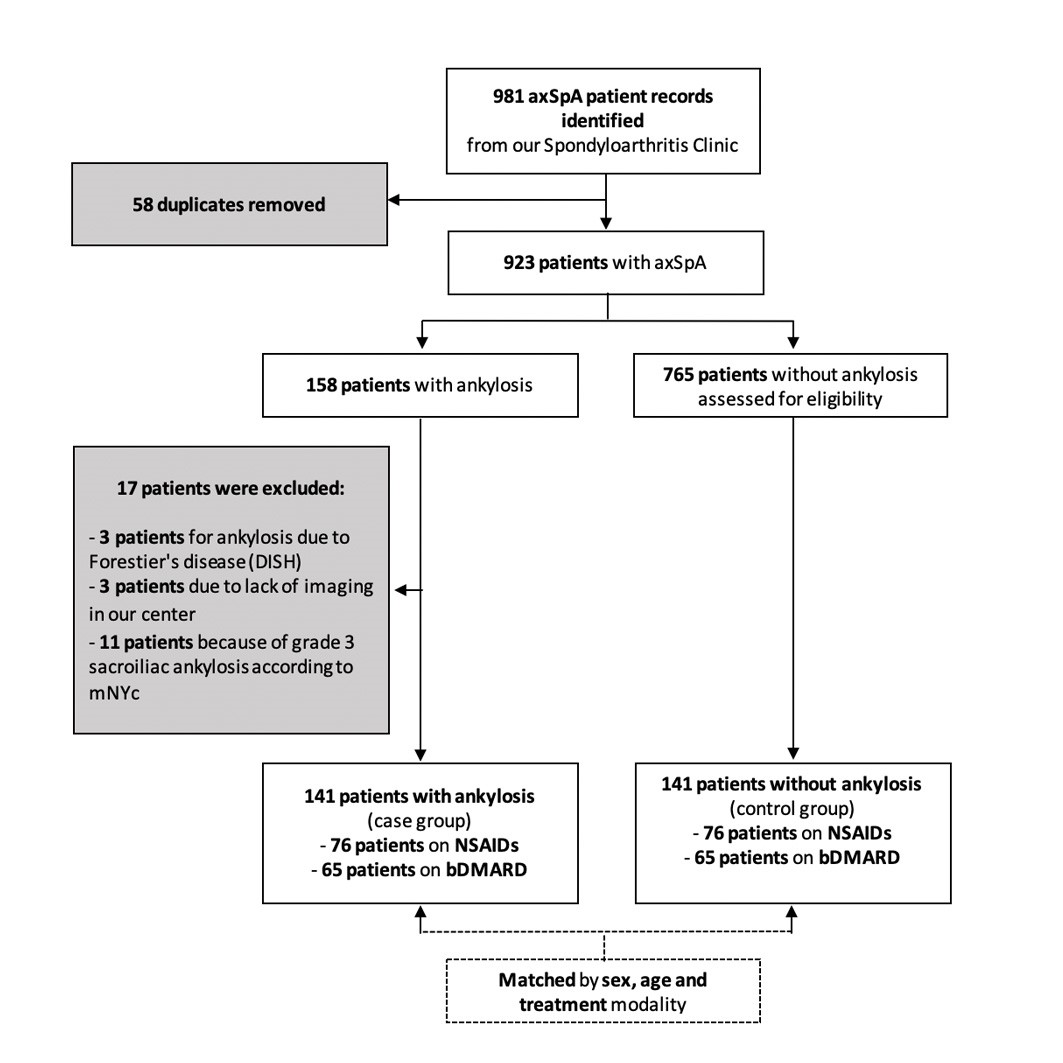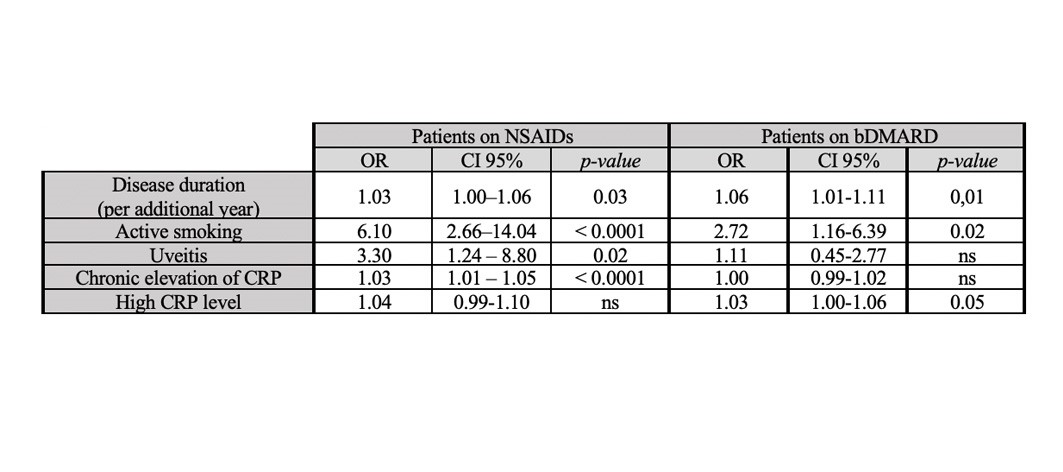Session Information
Session Type: Poster Session C
Session Time: 10:30AM-12:30PM
Background/Purpose: Axial spondyloarthritis (axSpA) is a progressive chronic inflammatory disease. In its early stages, symptoms appear without radiographic evidence. Later, structural lesions are observed on radiographs, among which ankylosis. However, the progression to ankylosis remains highly variable. Thus, extensive research has identified different biomarkers and predictors. However, how treatment modalities affect the associations between ankylosis and risk factors is still unclear. This study aims to identify clinical factors associated with ankylosis in axSpA through a subgroup analysis based on two different treatment modalities: non-steroidal anti-inflammatory drugs (NSAIDs) or biologic disease-modifying anti-rheumatic drug (bDMARD).
Methods: We performed a in an academic hospital a nested case-control study utilizing data from a prospective cohort of axSpA patients. Diagnosis was based on the ASAS criteria for radiographic axial spondyloarthritis (r-axSpA) and the modified New York criteria for ankylosing spondylitis. Cases of ankylosis were identified through imaging protocols, supervised by a senior radiologist while controls were selected from the same cohort, showing no ankylosis at the last follow-up. Controls were matched with cases by age, sex, and treatment category (NSAIDs or biological treatments including TNF-alpha blockers and IL17 blockers) in a 1:1 ratio. See Figure .
Results: 141 patients (16%) had ankylosis, among which 76 were treated with NSAIDs and 65 with bDMARDs. The disease duration and smoking were risk factors for ankylosis, independent of treatment. Active smoking was however associated with a higher odds ratio for patients treated with NSAIDs (OR = 6.10, p < 0.0001) compared to those treated with bDMARDs (OR = 2.72, p = 0.02). In patients treated with NSAIDs, a history of uveitis (OR = 3.3, p = 0.02) and chronic elevation of C-reactive protein (CRP) (OR = 1.03, p < 0.0001) were associated with ankylosis, whereas in patients on bDMARDs, elevated CRP (OR = 1.03, p = 0.05) but not past history of uveitis was associated with ankylosis. See Table.
Conclusion: In this nested case-control study, results suggest that the risk factors of progression to ankylosis in axSpA are different between patients on NSAIDs and those on bDMARDs. We need further studies to increase our understanding about these findings and better address ankylosis risk factors.
To cite this abstract in AMA style:
KRUG P, Lichaa A, Nzeusseu Toukap A. Treatment Effect on Predictors of Ankylosis in Axial Spondyloarthritis [abstract]. Arthritis Rheumatol. 2024; 76 (suppl 9). https://acrabstracts.org/abstract/treatment-effect-on-predictors-of-ankylosis-in-axial-spondyloarthritis/. Accessed .« Back to ACR Convergence 2024
ACR Meeting Abstracts - https://acrabstracts.org/abstract/treatment-effect-on-predictors-of-ankylosis-in-axial-spondyloarthritis/


